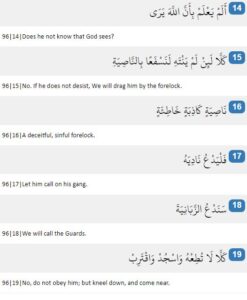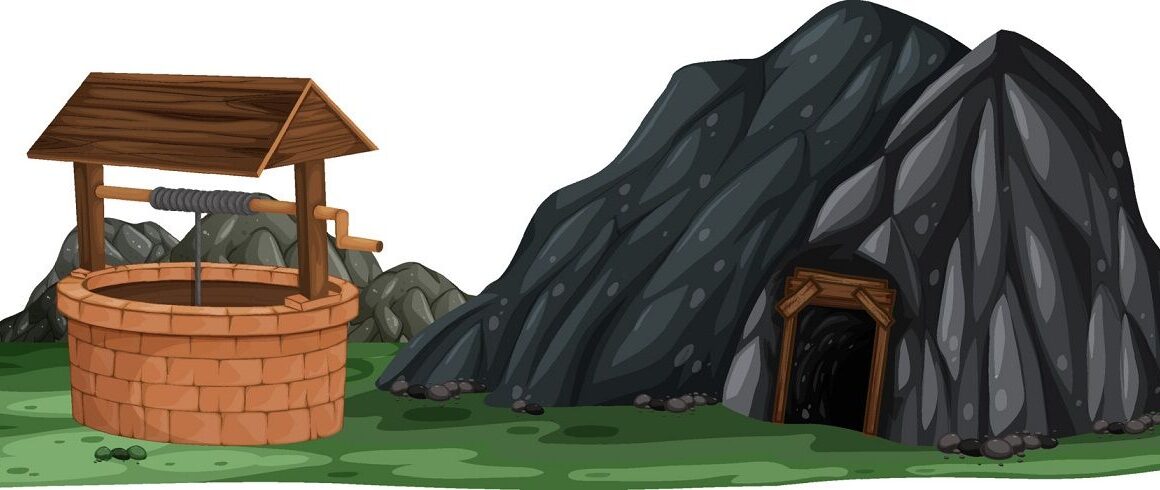[fusion_builder_container hundred_percent=”no” hundred_percent_height=”no” hundred_percent_height_scroll=”no” hundred_percent_height_center_content=”yes” equal_height_columns=”no” menu_anchor=”” hide_on_mobile=”small-visibility,medium-visibility,large-visibility” status=”published” publish_date=”” class=”” id=”” background_color=”” background_image=”” background_position=”center center” background_repeat=”no-repeat” fade=”no” background_parallax=”none” enable_mobile=”no” parallax_speed=”0.3″ video_mp4=”” video_webm=”” video_ogv=”” video_url=”” video_aspect_ratio=”16:9″ video_loop=”yes” video_mute=”yes” video_preview_image=”” border_color=”” border_style=”solid” margin_top=”” margin_bottom=”” padding_top=”” padding_right=”” padding_bottom=”” padding_left=”” type=”flex”][fusion_builder_row][fusion_builder_column type=”1_1″ layout=”1_1″ spacing=”” center_content=”no” link=”” target=”_self” min_height=”” hide_on_mobile=”small-visibility,medium-visibility,large-visibility” class=”” id=”” background_color=”” background_image=”” background_image_id=”” background_position=”left top” background_repeat=”no-repeat” hover_type=”none” border_color=”” border_style=”solid” border_position=”all” border_radius=”” box_shadow=”no” dimension_box_shadow=”” box_shadow_blur=”0″ box_shadow_spread=”0″ box_shadow_color=”” box_shadow_style=”” padding_top=”” padding_right=”” padding_bottom=”” padding_left=”” margin_top=”” margin_bottom=”” animation_type=”” animation_direction=”left” animation_speed=”0.3″ animation_offset=”” last=”true” first=”true” border_sizes_top=”0″ border_sizes_bottom=”0″ border_sizes_left=”0″ border_sizes_right=”0″][fusion_text columns=”” column_min_width=”” column_spacing=”” rule_style=”default” rule_size=”” rule_color=”” hue=”” saturation=”” lightness=”” alpha=”” content_alignment_medium=”” content_alignment_small=”” content_alignment=”” hide_on_mobile=”small-visibility,medium-visibility,large-visibility” sticky_display=”normal,sticky” class=”” id=”” margin_top=”” margin_right=”” margin_bottom=”” margin_left=”” fusion_font_family_text_font=”” fusion_font_variant_text_font=”” font_size=”” line_height=”” letter_spacing=”” text_transform=”none” text_color=”” animation_type=”” animation_direction=”left” animation_speed=”0.3″ animation_offset=””]
We will continue to Surah Al-Alaq tafsir In Sha Allah(If Allah wills)
Please read the first part of the tafsir of surah Al-Alaq by clicking here.

The sixth verse
“In fact, man oversteps all bounds”
In other words, “man does transgress”
Certainty man does transgress. Man rebels think that they are free of need and, therefore, exceed Allah’s boundaries for humans.
The seventh verse
“When he considers himself exempt”
Or “Because he sees himself self-sufficient.”
Allah is telling us that man does transgress, and the reason is that man thinks they are self-sufficient, and that is when the human exceeds the bounds that Allah has set for them.
That is when humans think that they can be independent and don’t need Allah. Therefore, they are free of need and decide to exceed the balance that Allah has set forth for them.
Allah has set these bans not to make things difficult but actually to make our lives easier because if we live our lives within these bounds, then we are protected from certain things.
We find comfort and peace in living our life with certain guidelines.
The eighth verse
“Indeed, to your lord is the return.”
This is another reminder for us when we remind ourselves that we will be returning to Allah. It’s a reminder that we are going to be held accountable for what we do.
We are not going to get away with everything that we are doing.
So, we can’t trample on other people’s rights and go about life however we want and treat others. However, we want or steal or cheat, or live our lives in certain ways without being held accountable.
It’s a reminder to us that, indeed, to Allah, our Lord is the return, and we will be held accountable at some point for our actions for what we had,
what we were given,
how we used it,
how we treated others,
how we lived our day-to-day lives and so on.

The Ninth and Tenth verse
9. “Have you seen him who forbids?”
10. “A servant when he prays?”
This is considered to be revealed about Abu Jahl because he would try to prevent the Prophet(S) who sent him from praying, whether by threatening him, making fun of him, cursing him, or making it difficult for him to pray at the Kaaba.
So, this verse was considered by scholars to be revealed about Abu Jahl, who used to try to prevent the Prophet(S) continuously from praying at the Kaaba.
There is one hadith that is reported in Bukhari where Abu Jahl has said, “if I see Muhammad praying at the Kaaba, “I will stomp on his neck.”(Muslim – 2797)
Eleventh and Twelfth Verse
11. “Do you think he is upon guidance?”
12. “Or joins righteousness?”
Allah says to the man who prevents that do you think this man you are preventing from praying is upon the straight path in his action or is guided.
Do you think this man is guided or enjoins righteousness, yet you criticize him and try to prevent him from praying!
Thirteenth Verse
“Have you seen whether he denies the truth and turns away from it.”
Allah talks about the man who chose to deny the truth and turn away from it. It’s something that we should be reflecting on and the actions we are putting forth, and the consequences of those actions.
Are we, through our actions turning away from Allah, or are we getting closer to him?
We should reflect on what we are doing in our daily lives and the actions and things we are committing in our day-to-day life, In sha Allah.
So to make sure that we are not turning away from Allah or denying what Allah has sent or the guidelines that he has put for us but trying our best to work harder to live our lives in those guidelines.

Fourteenth Verse
“Does he not know that Allah sees?”
Allah reminds us does he not realize that Allah sees all. So Abu Jahl and anybody else who goes against the Prophet(PBUH) do not realize that Allah sees everything they are doing.
Do they not recognize this? Do they not remember it? Again, it reminds us that Allah is seeing; Allah knows. So try to think twice before we do something to remember that Allah is seeing, and also it should comfort us because sometimes we maybe are trying to do good and maybe nobody recognizes it, or our intention doesn’t turn out as planned. We have a good intention, and if something doesn’t work out, we should find comfort that Allah knows and sees doesn’t just see our intentions, but he also sees what’s in our hearts.
He knows exactly what we are doing and its intentions, and he will reward us accordingly, so that should be twofold for us. It should be a reminder to us that Allah is always watching.
Fifteenth and Sixteenth Verse
15. “No! If he does not desist, We will surely drag him by the forelock.”
16. “A deceitful, sinful forelock.”
That is what will happen to him if he doesn’t stop. He is being told that if he doesn’t stop, he will have his forehead scorched, or a sinful forehead will drag him. This is very strong against Abu Jahl, saying that he will be dragged by a sword or scorched a sinful lying forehead on his forehead. It was said that Abu Jahl heard the Quran and believed that it was true but still chose to reject it and deny it!
So, Allah is calling him a liar in this surah, a sinful lying forehead, he is lying in his statement, and he is sinful in the actions that he is doing.
Seventeenth and Eighteenth Verse
17. “Let him call on his gang.”
18. “We will call the Guards.”
Let him(Abu Jahl) call upon his counsel to call his people and his tribe to help him.
Abu Jahl used to feel empowered because he had a big group of people following him and listening to him. He had a certain level of power and status.
Allah says that on this day for leader, let him call upon his counsel and try to get help from them. We will call out the guards of hell.
So, again strong wording and strong imagery. Allah tells him you call upon your counsel, and we will call upon ours.
Nineteenth the Last Verse
“No, do not obey him; but kneel down, and come near.”
Allah is telling his Prophet(S) not to obey him. Don’t worry about what he’s doing; he’s trying to prevent you from praying, trying to stop you from what you’re doing.
Do not give in to that; do not let him stop you. Don’t worry about it, and you keep doing what you’re doing, keep praying where you want, and keep spreading the message. Don’t worry because Allah is the best of protectors.
So fall in prostration prostrate and draw near.
We have a hadith in Sahih Muslim that says
“the closest that a servant can be to his lord is when he is in frustration therefore make abundant supplications.”
So, you want to get close to Allah, make sujud and draw near Allah. That is the closest that you can be to Allah. Prolong your prostrations to Allah and spend time and worship with him. Make lots of dua and draw near to him through those prostrations.
You can read the story here Iqra bismi rabbika allazi khalaq – The revelation
[/fusion_text][/fusion_builder_column][/fusion_builder_row][/fusion_builder_container][fusion_builder_container hundred_percent=”no” hundred_percent_height=”no” hundred_percent_height_scroll=”no” hundred_percent_height_center_content=”yes” equal_height_columns=”no” menu_anchor=”” hide_on_mobile=”small-visibility,medium-visibility,large-visibility” status=”published” publish_date=”” class=”” id=”” background_color=”” background_image=”” background_position=”center center” background_repeat=”no-repeat” fade=”no” background_parallax=”none” enable_mobile=”no” parallax_speed=”0.3″ video_mp4=”” video_webm=”” video_ogv=”” video_url=”” video_aspect_ratio=”16:9″ video_loop=”yes” video_mute=”yes” video_preview_image=”” border_color=”” border_style=”solid” margin_top=”” margin_bottom=”” padding_top=”” padding_right=”” padding_bottom=”” padding_left=”” type=”flex”][fusion_builder_row][fusion_builder_column type=”1_3″ layout=”1_1″ spacing=”” center_content=”no” link=”” target=”_self” min_height=”” hide_on_mobile=”small-visibility,medium-visibility,large-visibility” class=”” id=”” background_color=”” background_image=”” background_image_id=”” background_position=”left top” background_repeat=”no-repeat” hover_type=”none” border_color=”” border_style=”solid” border_position=”all” border_radius=”” box_shadow=”no” dimension_box_shadow=”” box_shadow_blur=”0″ box_shadow_spread=”0″ box_shadow_color=”” box_shadow_style=”” padding_top=”” padding_right=”” padding_bottom=”” padding_left=”” margin_top=”” margin_bottom=”” animation_type=”” animation_direction=”left” animation_speed=”0.3″ animation_offset=”” last=”false” first=”true” border_sizes_top=”0″ border_sizes_bottom=”0″ border_sizes_left=”0″ border_sizes_right=”0″ spacing_right=””][fusion_title content_align=”left” size=”2″ font_size=”” line_height=”” letter_spacing=”” text_color=”” style_type=”default” sep_color=”” hide_on_mobile=”small-visibility,medium-visibility,large-visibility” class=”” id=””]
About The Author
[/fusion_title][fusion_imageframe image_id=”315|full” max_width=”250px” style_type=”” blur=”” stylecolor=”” hover_type=”none” bordersize=”” bordercolor=”” borderradius=”50%” align=”none” lightbox=”no” gallery_id=”” lightbox_image=”” lightbox_image_id=”” alt=”” link=”” linktarget=”_self” animation_type=”” animation_direction=”left” animation_speed=”0.3″ animation_offset=”” hide_on_mobile=”small-visibility,medium-visibility,large-visibility” class=”” id=””]https://surah.net/wp-content/uploads/2019/09/avada-podcasts-amelia-grange-1.jpg[/fusion_imageframe][/fusion_builder_column][fusion_builder_column type=”2_3″ layout=”1_1″ spacing=”” center_content=”no” link=”” target=”_self” min_height=”” hide_on_mobile=”small-visibility,medium-visibility,large-visibility” class=”” id=”” background_color=”” background_image=”” background_image_id=”” background_position=”left top” background_repeat=”no-repeat” hover_type=”none” border_color=”” border_style=”solid” border_position=”all” border_radius=”” box_shadow=”no” dimension_box_shadow=”” box_shadow_blur=”0″ box_shadow_spread=”0″ box_shadow_color=”” box_shadow_style=”” padding_top=”60px” padding_right=”” padding_bottom=”” padding_left=”” margin_top=”” margin_bottom=”” animation_type=”” animation_direction=”left” animation_speed=”0.3″ animation_offset=”” last=”true” first=”false” border_sizes_top=”0″ border_sizes_bottom=”0″ border_sizes_left=”0″ border_sizes_right=”0″][fusion_title content_align=”left” size=”3″ font_size=”” line_height=”” letter_spacing=”” text_color=”” style_type=”default” sep_color=”” hide_on_mobile=”small-visibility,medium-visibility,large-visibility” class=”” id=”” margin_bottom=”20px” margin_bottom_mobile=”20px” margin_bottom_small=”20px”]
Amelia Grange
[/fusion_title][fusion_text columns=”” column_min_width=”” column_spacing=”” rule_style=”default” rule_size=”” rule_color=”” hide_on_mobile=”small-visibility,medium-visibility,large-visibility” class=”” id=””]
Lorem ipsum dolor sit amet, consectetur adipiscing elit. Sed nec pellentesque purus. Nunc finibus urna eget est molestie, non dignissim nulla cursus.
[/fusion_text][fusion_button link=”http://bit.ly/2l3jd8A” text_transform=”” title=”” target=”_self” link_attributes=”” alignment=”left” modal=”” color=”custom” button_gradient_top_color=”var(–awb-color3)” button_gradient_bottom_color=”var(–awb-color3)” button_gradient_top_color_hover=”var(–awb-color3)” button_gradient_bottom_color_hover=”var(–awb-color3)” accent_color=”” accent_hover_color=”” type=”” bevel_color=”” size=”medium” stretch=”default” icon=”” icon_position=”left” icon_divider=”no” animation_type=”” animation_direction=”left” animation_speed=”0.3″ animation_offset=”” hide_on_mobile=”small-visibility,medium-visibility,large-visibility” class=”” id=”” border_radius_top_left=”2px” border_radius_top_right=”2px” border_radius_bottom_right=”2px” border_radius_bottom_left=”2px”]LIFESTYLE[/fusion_button][fusion_separator style_type=”default” sep_color=”” border_size=”” icon=”” icon_circle=”” icon_circle_color=”” alignment=”center” hide_on_mobile=”small-visibility,medium-visibility,large-visibility” class=”” id=”” top_margin=”20px” /][fusion_checklist icon=”fusion-prefix-awb-podcasts-link” iconcolor=”var(–awb-color3)” circle=”no” circlecolor=”” size=”18px” divider=”” divider_color=”” hide_on_mobile=”small-visibility,medium-visibility,large-visibility” class=”” id=””][fusion_li_item icon=””]
[/fusion_li_item][/fusion_checklist][/fusion_builder_column][/fusion_builder_row][/fusion_builder_container]





One thought on “Iqra bismi rabbika allazi khalaq – Surah Alaq Tafsir Part 2”